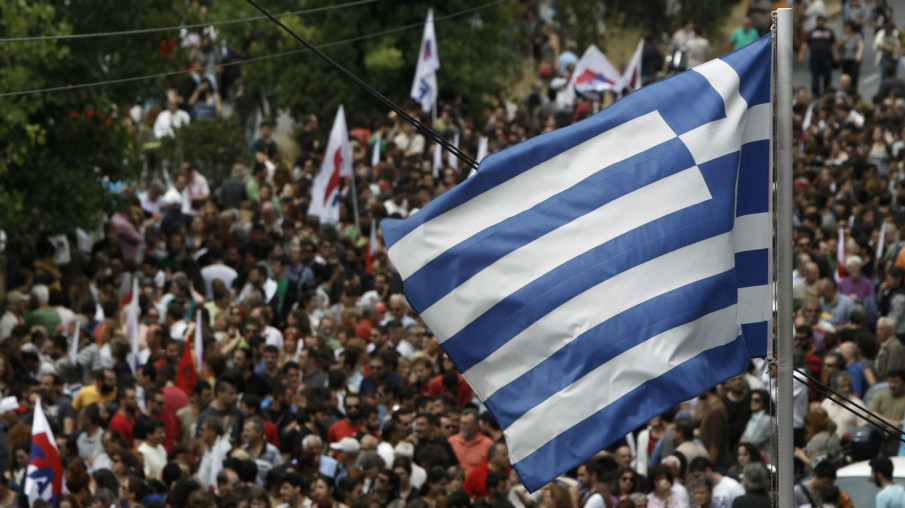It is the morning after a historic referendum in Greece. The people have voted against a reforms proposal by the country’s European partners, and it is still unclear what the consequences of this vote will be. One thing that has definitely not changed since last night is the people lining up at the ATMs. But it will soon. By the end of the day, banks are expected to run out of cash.
Recognizing that Greece won’t leave the currency union, the government has formed a new negotiating team, which will be sent to Brussels to resume talks with the country’s creditors. What will be negotiated there will be the terms of a third bailout program. A third memorandum. Even in the best-case scenario, those terms will be harsh and will probably prompt further austerity measures in Greece. However, Greece will secure further funding—which it desperately needs—from its partners, and might also achieve some debt relief.
If those terms are approved by the national parliaments and the deal is sealed, it might as well be that the European Central Bank (ECB) will resume its emergency lending to Greece’s banking system. Eventually, liquidity will be restored and the economy stabilized. If the first installment of the new bailout aid is approved soon enough, Greece might be able to pay the 3.5 billion euros it owes to ECB for two government bonds due July 20th. And as long as we’re exploring this overly optimistic scenario, the country might as well pay the 1.5 billion euros of outstanding debt owed to the International Monetary Fund before its governing council has to announce an official default by the end of the month.
The dangers in this scenario come from the government’s own party. The most radical factions of the Syriza government will by no means accept further austerity measures, especially after the people’s vote against it in the referendum. The government might eventually collapse, leading to the formation of a coalition government with the participation of pro-European opposition parties, or to new general elections altogether. This isn’t good, but it’s a more realistic outcome than the one explored above.
The first reactions from Greece’s Eurozone partners do not reflect how much will be needed to successfully negotiate with the country’s authorities. When the prime minister called for a referendum on a proposal that had been revoked and for a bailout program that had expired by the time the referendum was held, it was immediately made clear that they interpreted the question as a “yes or no” to the common currency.
It is very unlikely that the EU partners will now trust a government that has campaigned for a “no” vote. Without a deal and a new bailout program, the ECB will find it politically difficult to grant further emergency loans to Greek banks. Without the ECB’s emergency liquidity assistance, the banks will run out of cash by the end of the day. If Greece defaults on its debt to ECB on July 20th, further loans will be politically impossible. After that, it will only take a few months for Greece to run out of basic goods, as it imports most of them.
For the government to be able to make its internal payments, it will have to issue IOUs, or eventually, a parallel currency. As the euro is the only legal tender allowed by the Eurozone treaties, this will lead to the country’s departure from the currency area. As the euro membership was meant to be irrevocable, there are no existing legal means to leave it. The new currency would be immensely depreciated and the prices of imported goods would soar. Politically, Greece would be isolated and civil unrest would arise. The country would depend on humanitarian aid from its neighbors and former partners. Greece will have been set back decades.
(Featured image courtesy of greekworldmedia.com)
Already have an account? Sign In
Two ways to continue to read this article.
Subscribe
$1.99
every 4 weeks
- Unlimited access to all articles
- Support independent journalism
- Ad-free reading experience
Subscribe Now
Recurring Monthly. Cancel Anytime.











COMMENTS